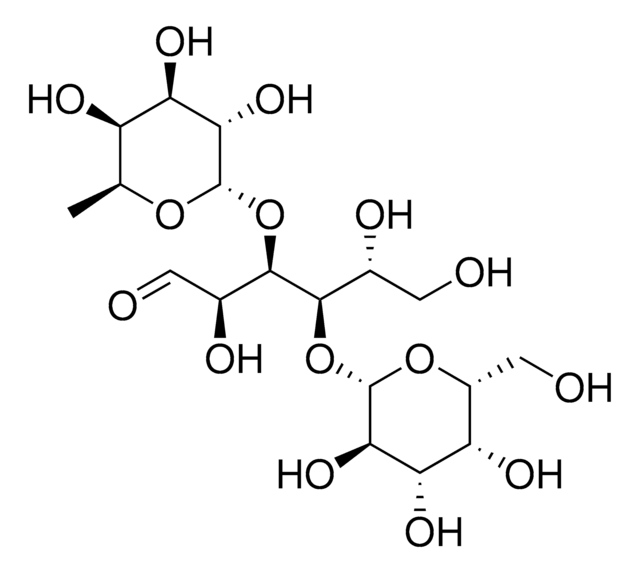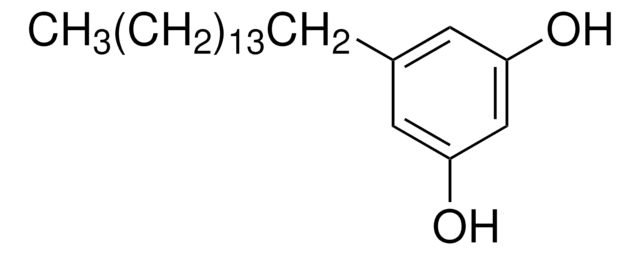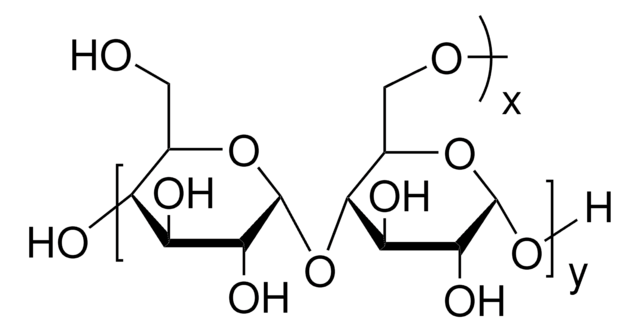SMB00933
2′-Fucosyllactose
≥95% (NMR)
Synonym(s):
2′-Fucosyllactose, 2′-Ο-Fucosyllactose
About This Item
Recommended Products
biological source
milk
Quality Level
Assay
≥95% (NMR)
form
crystalline powder
mol wt
488.44 g/mol
storage condition
(Keep container tightly closed in a dry and well -ventilated place.)
color
white
mp
230 - 231 °C ((446 - 448 °F ))
storage temp.
-10 to -25°C
InChI
1S/C18H32O15/c1-5-9(24)12(27)14(29)17(30-5)33-16-13(28)11(26)8(4-21)31-18(16)32-15(7(23)3-20)10(25)6(22)2-19/h2,5-18,20-29H,3-4H2,1H3/t5-,6-,7+,8+,9+,10+,11-,12+,13-,14-,15+,16+,17-,18-/m0/s1
InChI key
HWHQUWQCBPAQQH-BWRPKUOHSA-N
Looking for similar products? Visit Product Comparison Guide
General description
Notably, it holds the distinction of being the most abundant human milk oligosaccharide (HMO), contributing to multiple functions, including acting as a prebiotic, safeguarding against infections and inflammation, modulating the immune system, supporting brain development, and reducing the risk of necrotizing enterocolitis. Also, high levels of 2′-fucosyllactose is associated with excessive weight gain during exclusive breastfeeding in 0 to 5 months infants. HMOs are important metabolites regulating host′s innate immune response.
Application
Biochem/physiol Actions
Features and Benefits
- High-purity compound suitable for a wide variety of research applications
Other Notes
Storage Class Code
11 - Combustible Solids
WGK
WGK 3
Flash Point(F)
Not applicable
Flash Point(C)
Not applicable
Choose from one of the most recent versions:
Certificates of Analysis (COA)
Don't see the Right Version?
If you require a particular version, you can look up a specific certificate by the Lot or Batch number.
Already Own This Product?
Find documentation for the products that you have recently purchased in the Document Library.
Our team of scientists has experience in all areas of research including Life Science, Material Science, Chemical Synthesis, Chromatography, Analytical and many others.
Contact Technical Service







